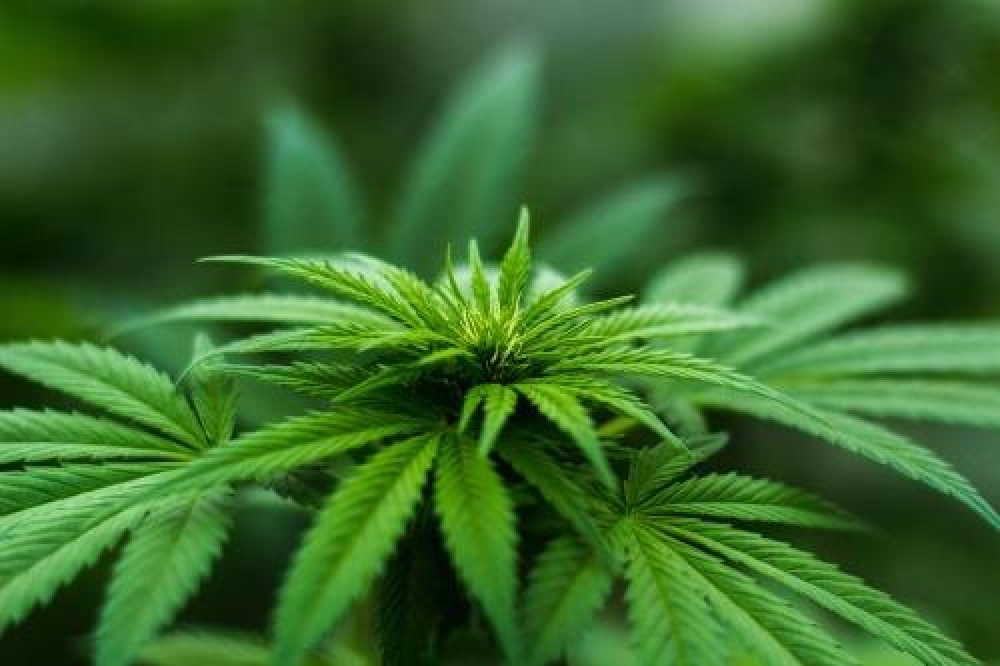
- Details
- By Tamara Ikenberg
- Economic Development
AKWESASNE, N.Y. — The St. Regis Mohawk Tribe is mixing marijuana into their economy without opening dispensaries.
In December, Tewáthahón:ni Corporation, a tribal holding company, entered into a joint development agreement with St. Petersburg, Fla.-based MMJ BioPharma Cultivation Inc.
MMJ says it is on the cusp of receiving an importers and cultivation license from the U.S. Drug Enforcement Agency for cannabis and pharmaceutical research, and will lease and develop approximately 20 acres of trust land from the tribe. The area will include a 500,000-square-foot federally licensed cultivation, extraction and lab facility where pharmaceuticals derived from the extracts will be created.
St. Regis Mohawk land extends into Canada, but the leased land is all located within New York state.
Scott Freeman, CEO of Tewáthahón:ni Corporation, said he expects the license to be granted by July 2021.
The joint development agreement has been two years in the making, and Freeman said this is the ideal moment for it to move forward.
“It couldn’t have come at a better time,” Freeman told Tribal Business News.
He explained that the Akwesasne Mohawk Casino Resort serves as the tribe’s main revenue source, but the COVID-19 pandemic cut deeply into its business, making economic diversification more urgent than ever. The casino closed in mid-March and reopened at the end of August.
“The casino business is based on volume, patronage, and customer count, and quite frankly, discretionary and disposable income,” Freeman said. “In a pandemic or an economic decline, many of those things go by the wayside.”
Freeman said Tewáthahón:ni Corporation joined with MMJ because of the firm’s industry credentials and its commitment to communicating with the tribe.
The company will use extracts from the plants to create caplets that diminish involuntary muscle movement in people with Multiple Sclerosis and Huntington’s Disease, a rare genetic neurodegenerative illness. It also plans to conduct clinical trials.
“The DEA gave our affiliate company, MMJ International Holdings, a permit to move highly concentrated THC and CBD extract with other actives into a pharmaceutical gel cap,” said Duan Boise, president and founder of MMJ BioPharma Cultivation. “We’re doing natural extracts. We’re not synthesizing it. We’re not putting any preservatives into it.”
Freeman is satisfied with the purpose and the ingredients of the pharmaceutical planned to be manufactured on St. Regis Mohawk land.
“It falls right in line with the tribe and the tribe’s beliefs: People first,” Freeman said. “And it is a homegrown type of thing. It’s not assimilating different types of chemicals. The core of this is cannabis.”
The tribe will benefit from the venture in multiple ways. First of all, no financial investment is required from Tewáthahón:ni. MMJ has agreed to a 25-year lease with Tewáthahón:ni acting as the landlord. In addition to rent, the tribe will also receive a percentage of the profits from the pharmaceutical and tribal members will get preference in hiring for dozens of jobs the company will create at the site.
From construction workers, chemists and cultivators, to security and maintenance professionals, the facility will require a large team of employees.
“We’re probably going to need up to 60 people that we’re going to be employing here in shifts. It’s not going to be a small operation,” Boise said. “It’s also an opportunity to train people. You need people to water and trim the plants and they have to understand the process.”
Boise said MMJ had been seeking a partner tribe for a long time before finding the right match in St. Regis Mohawk.
“The Mohawk tribe has federal sovereign land, which is significant to us. And that’s why I’ve spent years trying to find a particular tribe that would understand the pharmaceutical (approach),” Boise said. “I can’t say enough good things about the tribe. We’ve been up there multiple times over the past two years.
“It was a process of understanding and education, because they were going to jump out like the rest of these other tribes and do dispensaries and get into that world. … We’ve stayed away from (dispensaries) intentionally over the past years of development of our strategy. The federally legal way to do this is in the development of a pharmaceutical.”
MMJ expects the product will reach the market within the next few years, according to Boise.
MMJ International Holdings has already been granted orphan drug status from the DEA, which is applied to treatments intended for rare conditions and disorders, including Huntington’s.
“The orphan designation is significant because it allows us to fast-track the studies. We’ll probably be out of the clinical trials in 24 months,” Boise said. “Once we get that license, our customers are going to be universities, doctors that have a schedule one license, and clinical research organizations wanting to do clinical trials.”
Boise said existing facilities on the property are currently being prepared for a DEA inspection that will take place prior to the award of the cultivation license.
Currently, the University of Mississippi holds the only federal license for the cultivation of marijuana. The DEA began accepting applications for new licensed facilities in 2016. To date, 35 applications are pending, including one from MMJ BioPharma Cultivation.
